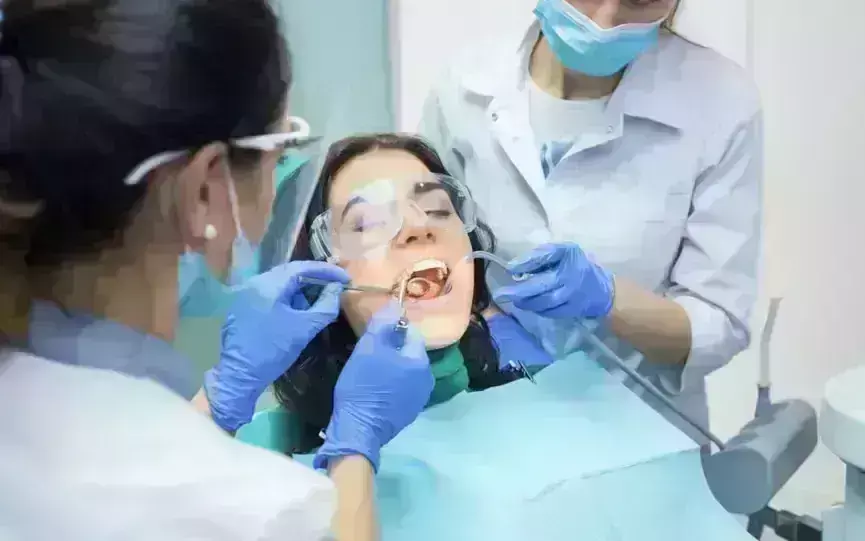- Home
- Medical news & Guidelines
- Anesthesiology
- Cardiology and CTVS
- Critical Care
- Dentistry
- Dermatology
- Diabetes and Endocrinology
- ENT
- Gastroenterology
- Medicine
- Nephrology
- Neurology
- Obstretics-Gynaecology
- Oncology
- Ophthalmology
- Orthopaedics
- Pediatrics-Neonatology
- Psychiatry
- Pulmonology
- Radiology
- Surgery
- Urology
- Laboratory Medicine
- Diet
- Nursing
- Paramedical
- Physiotherapy
- Health news
- Fact Check
- Bone Health Fact Check
- Brain Health Fact Check
- Cancer Related Fact Check
- Child Care Fact Check
- Dental and oral health fact check
- Diabetes and metabolic health fact check
- Diet and Nutrition Fact Check
- Eye and ENT Care Fact Check
- Fitness fact check
- Gut health fact check
- Heart health fact check
- Kidney health fact check
- Medical education fact check
- Men's health fact check
- Respiratory fact check
- Skin and hair care fact check
- Vaccine and Immunization fact check
- Women's health fact check
- AYUSH
- State News
- Andaman and Nicobar Islands
- Andhra Pradesh
- Arunachal Pradesh
- Assam
- Bihar
- Chandigarh
- Chattisgarh
- Dadra and Nagar Haveli
- Daman and Diu
- Delhi
- Goa
- Gujarat
- Haryana
- Himachal Pradesh
- Jammu & Kashmir
- Jharkhand
- Karnataka
- Kerala
- Ladakh
- Lakshadweep
- Madhya Pradesh
- Maharashtra
- Manipur
- Meghalaya
- Mizoram
- Nagaland
- Odisha
- Puducherry
- Punjab
- Rajasthan
- Sikkim
- Tamil Nadu
- Telangana
- Tripura
- Uttar Pradesh
- Uttrakhand
- West Bengal
- Medical Education
- Industry
Peri-implantitis linked to bleeding on probing and progressive bone loss: Study

Diagnosis of peri-implantitis requires the presence of Bleeding on probing (BOP) and progressive bone loss, according to new research published in the Clinical Oral Implants Research.
The aim of Working Group 4 was to address topics related to biologic risks and complications associated with implant dentistry. Focused questions on (a) diagnosis of peri-implantitis, (b) complications associated with implants in augmented sites, (c) outcomes following treatment of peri-implantitis, and (d) implant therapy in geriatric patients and/or patients with systemic diseases were addressed.
Four systematic reviews formed the basis for discussion in Group 4. Participants developed statements and recommendations determined by group consensus based on the findings of the systematic reviews. These were then presented and accepted following further discussion and modifications as required by the plenary.
Results:
Bleeding on probing (BOP) alone is insufficient for diagnosing peri-implantitis. The positive predictive value of BOP alone for the diagnosis of peri-implantitis varies and is dependent on the prevalence of peri-implantitis within the population. For patients with implants in augmented sites, the prevalence of peri-implantitis and implant loss is low over the medium to long term. Peri-implantitis treatment protocols which include individualized supportive care, result in high survival of implants after 5 years, with about three-quarters of implants still present. Advanced age alone is not a contraindication for implant therapy. Implant placement in patients with cancer receiving high-dose antiresorptive therapy is contraindicated due to the associated high risk for complications.
Thus, Diagnosis of peri-implantitis requires the presence of Bleeding on probing (BOP) and progressive bone loss. The prevalence of peri-implantitis for implants in augmented sites is low. Peri-implantitis treatment should be followed by individualized supportive care. Implant therapy for geriatric patients is not contraindicated; however, comorbidities and autonomy should be considered.
Reference:
Group 4 ITI Consensus Report: Risks and biologic complications associated with implant dentistry by Lisa J. Heitz-Mayfield et al. published in the Clinical Oral Implants Research.
https://doi.org/10.1111/clr.13307
Dr. Shravani Dali has completed her BDS from Pravara institute of medical sciences, loni. Following which she extensively worked in the healthcare sector for 2+ years. She has been actively involved in writing blogs in field of health and wellness. Currently she is pursuing her Masters of public health-health administration from Tata institute of social sciences. She can be contacted at editorial@medicaldialogues.in.
Dr Kamal Kant Kohli-MBBS, DTCD- a chest specialist with more than 30 years of practice and a flair for writing clinical articles, Dr Kamal Kant Kohli joined Medical Dialogues as a Chief Editor of Medical News. Besides writing articles, as an editor, he proofreads and verifies all the medical content published on Medical Dialogues including those coming from journals, studies,medical conferences,guidelines etc. Email: drkohli@medicaldialogues.in. Contact no. 011-43720751


